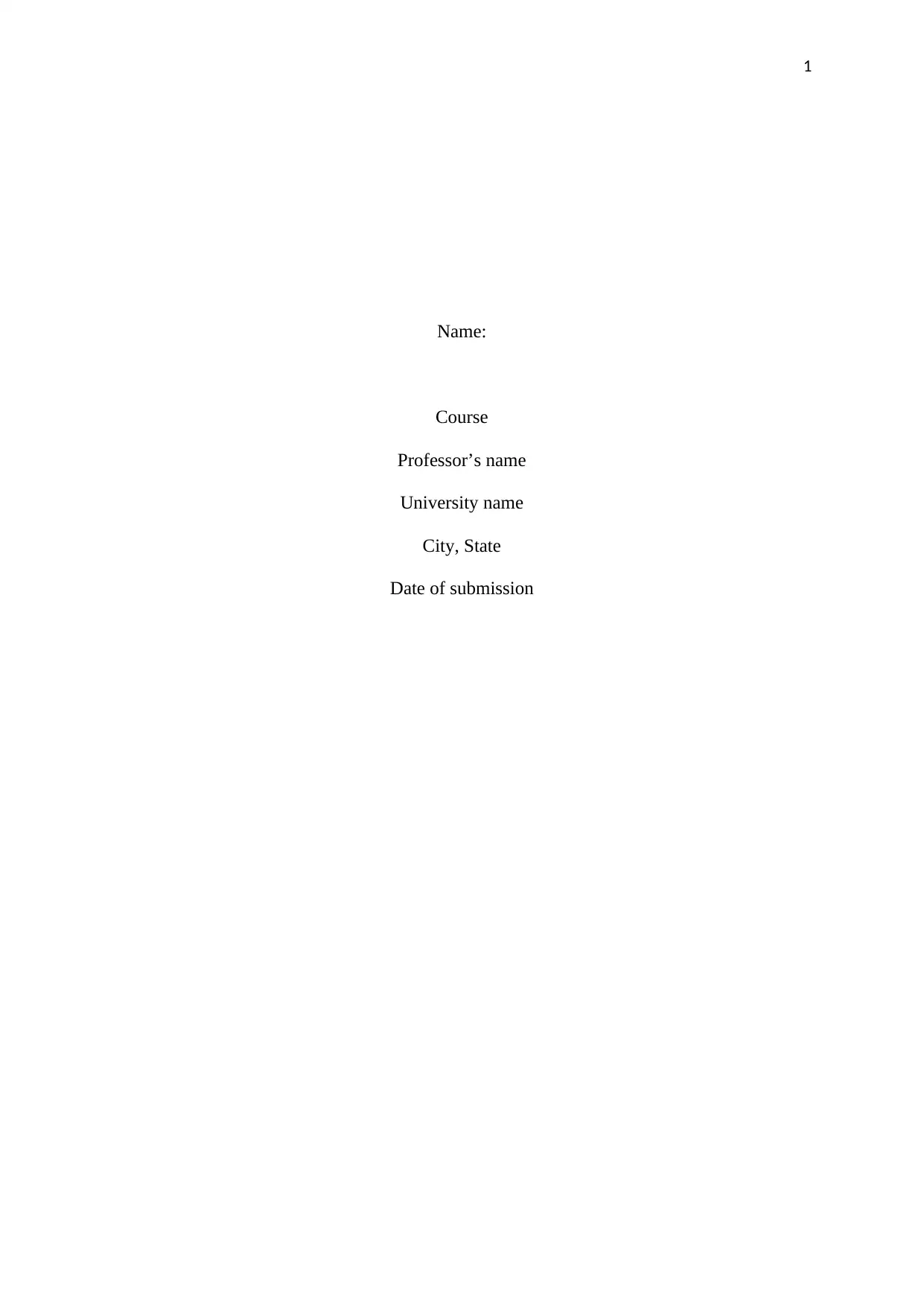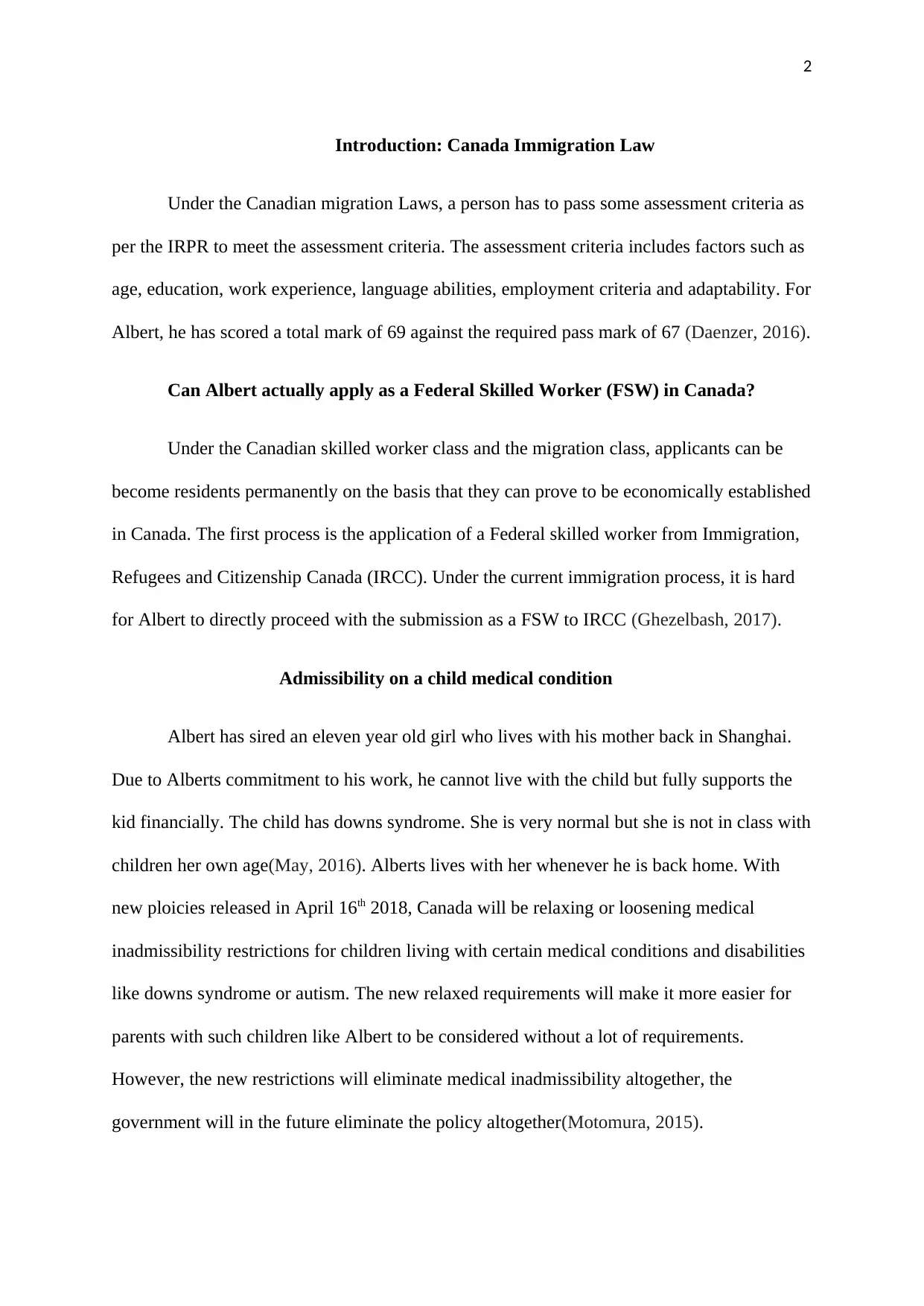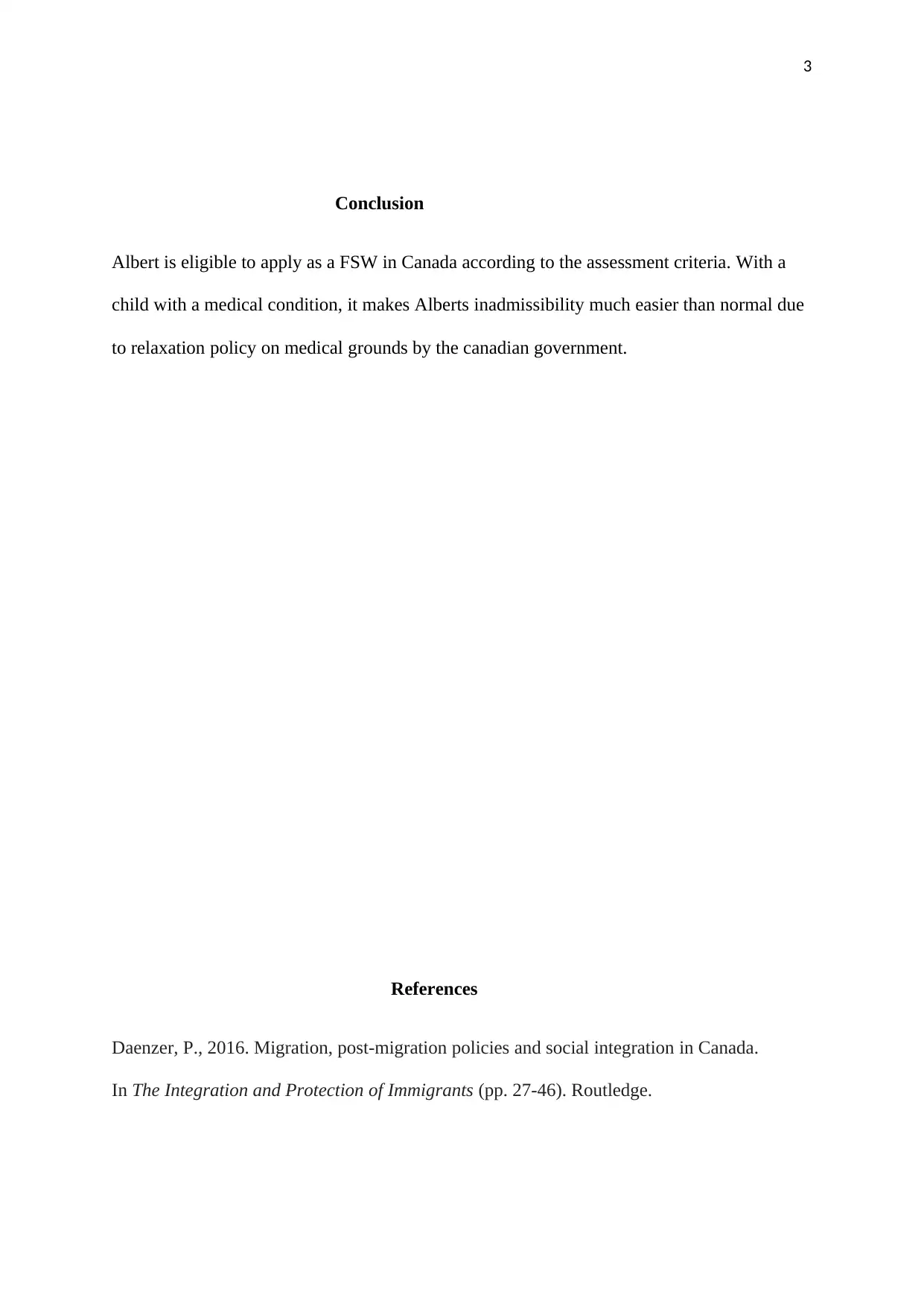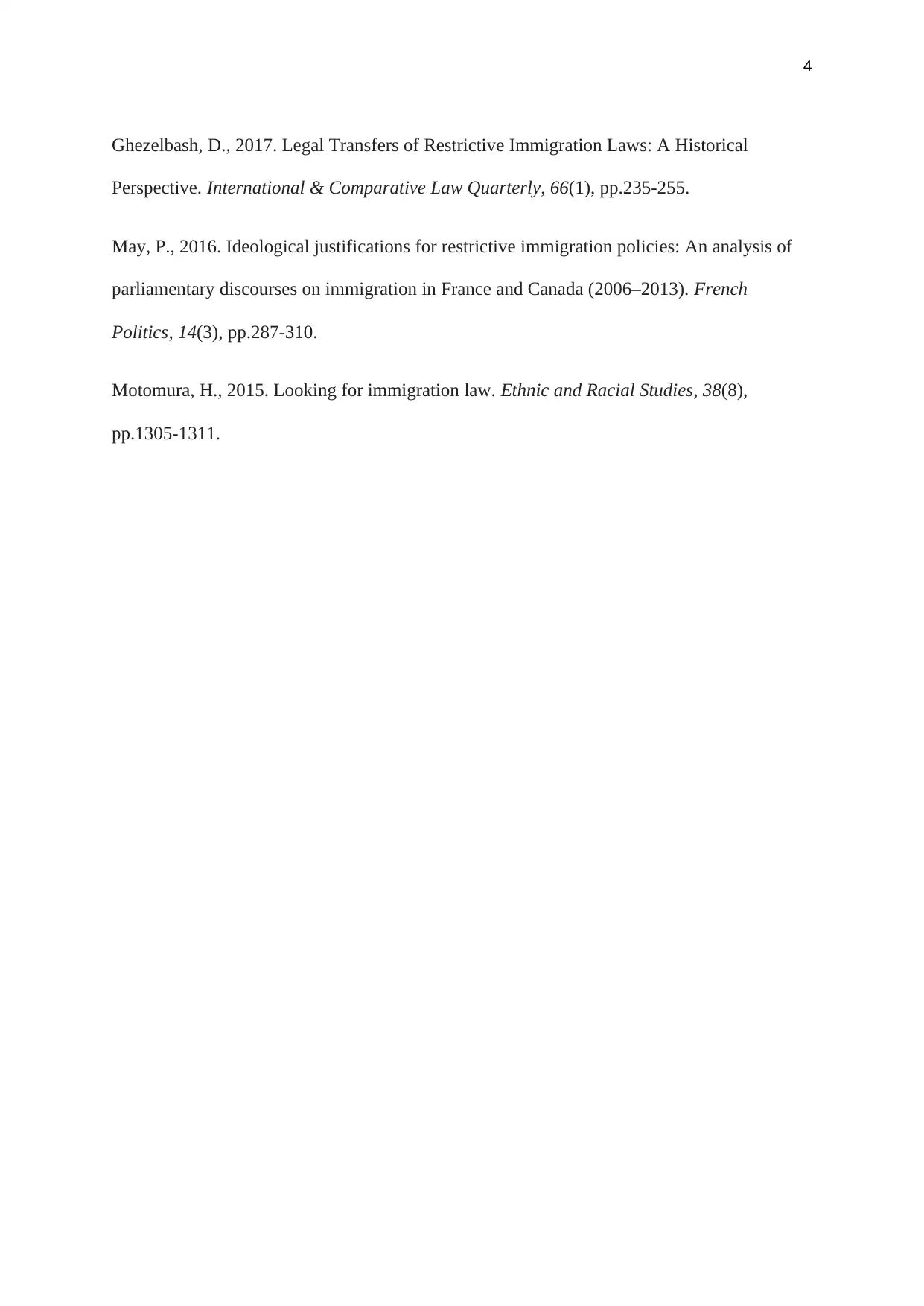Course Name: Albert's Canada Immigration Application and Express Entry
VerifiedAdded on 2022/11/30
|4
|522
|174
Homework Assignment
AI Summary
This assignment delves into Albert's application for the Federal Skilled Worker (FSW) program in Canada. It begins with an introduction to Canadian immigration law and the assessment criteria under the IRPR, highlighting Albert's initial score. The assignment then explores the complexities of Albert's case, including his daughter's medical condition (Down syndrome) and how it impacts his application under the new relaxed medical inadmissibility restrictions. The core of the assignment involves analyzing Albert's profile within the Comprehensive Ranking System (CRS) established by IRCC for Express Entry candidates. The assignment requires the student to research the CRS, apply it to Albert's particulars, and present his ranking. Furthermore, it demands suggestions on how Albert can maximize his chances of receiving an invitation to apply for permanent residence, providing specific actions to improve his score. The analysis considers all factors of the CRS and is supported by research to substantiate the arguments. The conclusion summarizes Albert's eligibility and the positive impact of the relaxed medical policies on his application. The assignment includes a list of references to support the arguments and findings.
1 out of 4





![[object Object]](/_next/static/media/star-bottom.7253800d.svg)